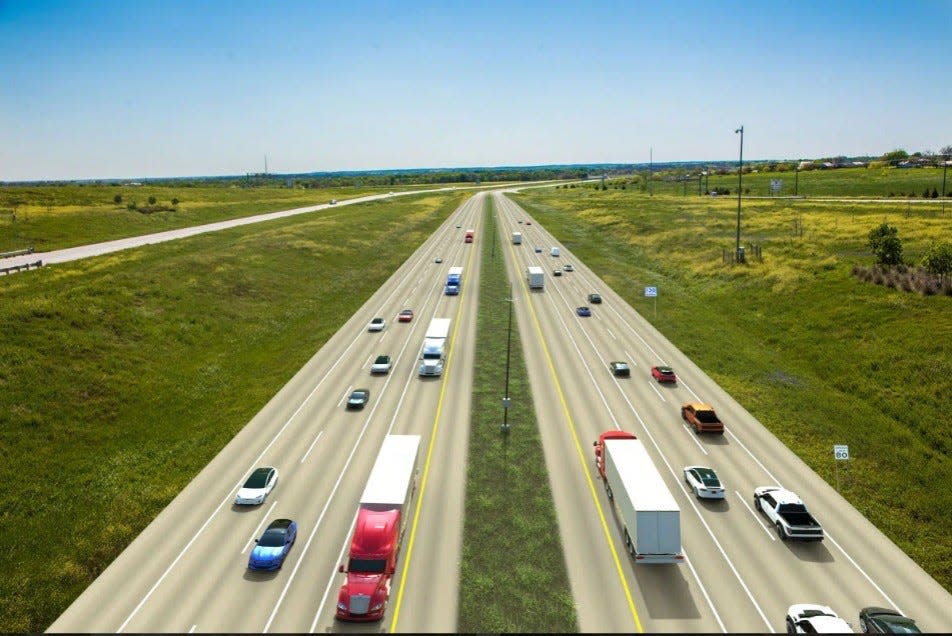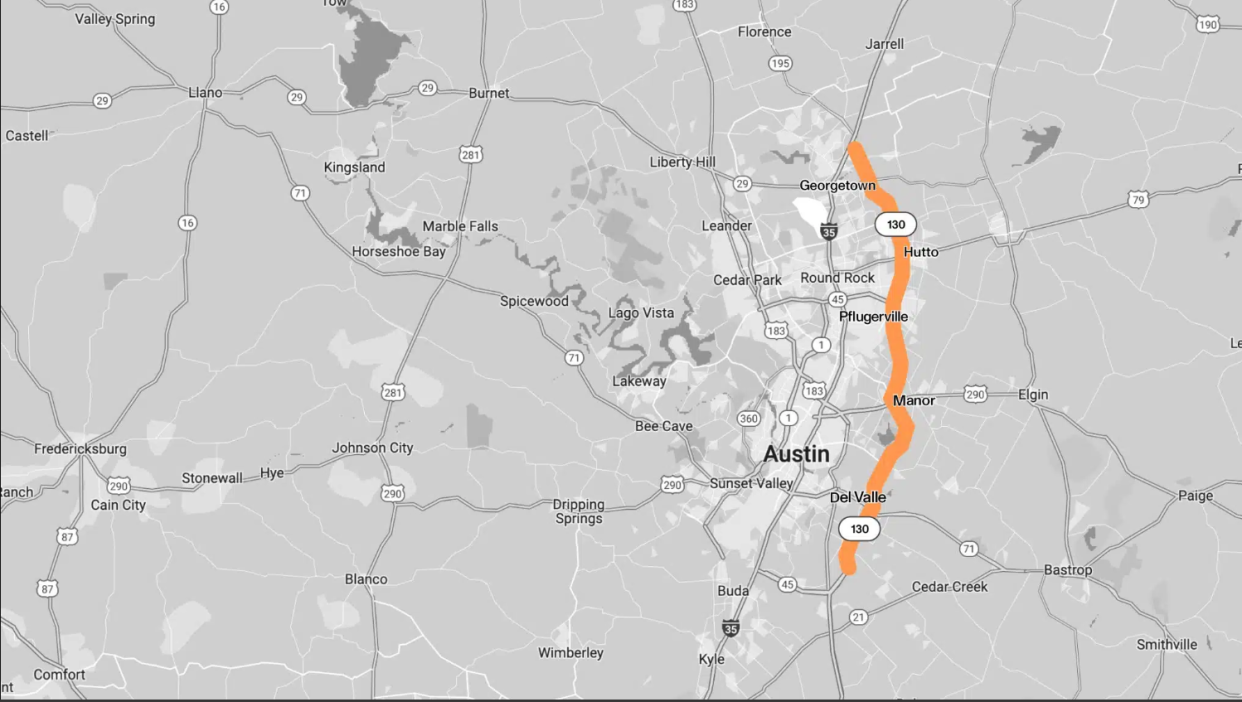Self-driving trucks will soon have their own lane on Texas 130. Will other highways follow?

Technology designed to improve the driving experience has largely focused on the vehicles themselves, with features such as advanced sensors and cameras designed to help drivers and develop autonomous vehicle features.
But what if the roads themselves could communicate about upcoming hazards or traffic?
This month, the Texas Department of Transportation announced it will be creating a smart freight corridor near Austin, that could be used for self-driving trucking and other advanced trucking on a 21-mile segment of Texas 130 between Texas 71 and Texas 45 North, including areas between Georgetown and Del Valle.
In the announcement, TxDOT said the pilot program will use technology from Washington DC-based startup, Cavnue, to observe operations across the entire corridor, use a mix of hardware and software technology to understand what is happening on the road, and share that information with vehicles and TxDOT itself in real time.
Here's what we know about the corridor:
How does the technology work?
Cavnue's technology uses cameras and advanced sensors on the roadway, along with a software platform that digitizes what is happening on a road. The technology can also be added to the roads in a matter of months, with minimal disruption, Cavnue CEO Tyler Duvall said.
The technology is designed to work in conjunction with self-driving vehicles such as trucks, which Duvall said are already equipped with their own advanced sensors that are dependent on quality of road elements such as lane markings and pavement for effective operation.
He added, the pilot will determine if feeding a vehicle information, beyond what it can "see" with its own camera and sensors, will improve vehicle operations.

Self-driving trucks are on already on Texas roadways
Duvall said Texas is in a position to lead on autonomous trucking because of its friendly regulatory environment, location in key freight corridors, and lack of weather, such as snow, that would cause issues for autonomous vehicles.
Texas is already home to several pilot programs where companies are testing self-driving trucks that are driving on Texas roads while monitored by human drivers. This includes Aurora, which is testing its trucks in the Dallas-area, as well as between Houston and El Paso. Kodiak Robotics has also been testing its semi-trucks and making deliveries in Texas.
In Austin, Torc Robotics, a subsidiary of Daimler Truck, also opened up an engineering office in 2023 that aims to accelerate self-driving truck technology.
In Texas, self-driving vehicles are allowed to operate without a driver inside and can be used on highways as long as they follow traffic laws and are equipped with video recording equipment, according to a state law passed in 2017. The vehicles also are required to have insurance and manufactures are considered responsible for any broken laws or collisions.
Self-driving car companies have been testing in Austin in recent years including Waymo and Volkswagen. GM-owned Cruise was testing and offering rideshare in Austin until it paused operations nationwide earlier this month, amid efforts to rebuild public trust following a high-profile incident and spat with the California Department of Motor Vehicles.
TxDOT, Cavnue aim for state-wide operations
In its announcement, TxDOT said the agency plans to take the information from the corridor and use it to expand advanced and autonomous trucking operations along other key roadways.
Duvall said if the pilot is successful, it will set a playbook for what a smart roadway is, what it needs to "see" and what it needs to be able to communicate to vehicles and governments.
“Our goal is to be the partner of Texas to make the (Texas) triangle and then I-10 and I-20 the most efficient road system in the world.”
This article originally appeared on Austin American-Statesman: TxDOT to test digital technology for self-driving trucks near Austin
